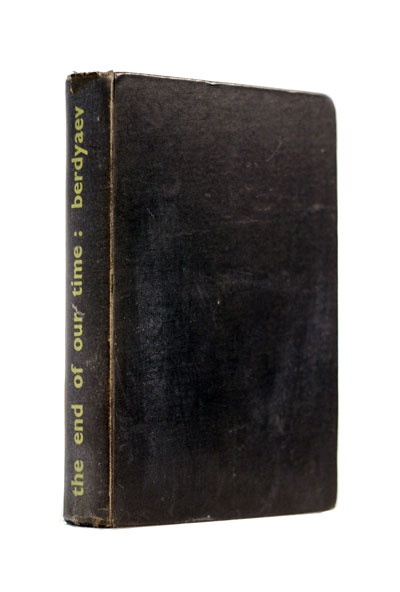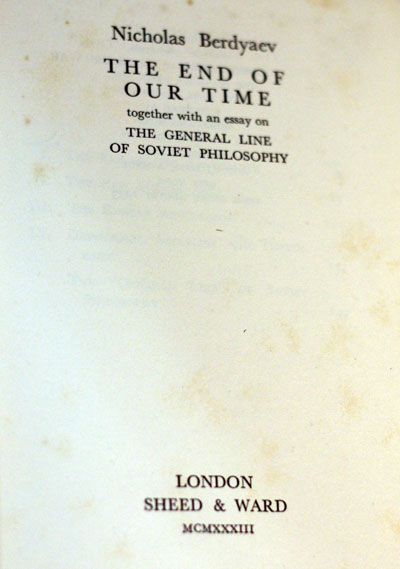This book is the philosophical fruit of Nikolai Berdyaev’s first-hand experience of, and reflections on, the crisis of European civilization in the aftermath of the Great War and the Russian Revolution. Berdyaev tells us that the modern age, with its failed Humanism, is being replaced by a new epoch: the new middle ages, an epoch of darkness, an epoch of the universal night of history. Berdyaev asserts that this night is a good thing: in this darkness, which is a return to the mysterious life of the spirit, the destruction inflicted by the previous period of light will be healed: Night is not less wonderful than day; it is equally the work of God; it is lit by the splendor of the stars and it reveals to us things that the day does not know. Night is closer than day to the mystery of all beginning.
About the author:
Berdyaev’s philosophy has been characterized as Christian existentialist. He was preoccupied with creativity and, in particular, with freedom from anything that inhibited creativity, such as his opposition to a “collectivized and mechanized society”.
According to Marko Markovic, “He was an ardent man, rebellious to all authority, an independent and “negative” spirit. He could assert himself only in negation and could not hear any assertion without immediately negating it, to such an extent that he would even be able to contradict himself and to attack people who shared his own prior opinions”.
He also published works about Russian history and the Russian national character. In particular, he wrote about Russian nationalism:
The Russian people did not achieve their ancient dream of Moscow, the Third Rome. The ecclesiastical schism of the seventeenth century revealed that the muscovite tsardom is not the third Rome. The messianic idea of the Russian people assumed either an apocalyptic form or a revolutionary; and then there occurred an amazing event in the destiny of the Russian people. Instead of the Third Rome in Russia, the Third International was achieved, and many of the features of the Third Rome pass over to the Third International. The Third International is also a Holy Empire, and it also is founded on an Orthodox faith. The Third International is not international, but a Russian national idea.
He was a practising member of the Russian Orthodox Church but was often critical of the institutional policies and un-Christian behavior in it. He was a Christian universalist, and he believed that Orthodox Christianity was the true vehicle for that teaching.
The greater part of Eastern teachers of the Church, from Clement of Alexandria to Maximus the Confessor, were supporters of Apokatastasis, of universal salvation and resurrection…. Orthodox thought has never been suppressed by the idea of Divine justice and it never forgot the idea of Divine love. Chiefly — it did not define man from the point of view of Divine justice but from the idea of transfiguration and Deification of man and cosmos.
Russian President Vladimir Putin has instructed his regional governors to read, among other philosophers, Berdyaev’s The Philosophy of Inequality. In 2015, it finally became available in English translation. (from wikipedia).



